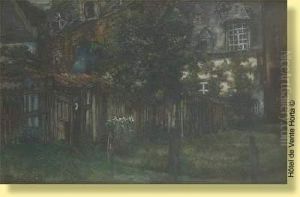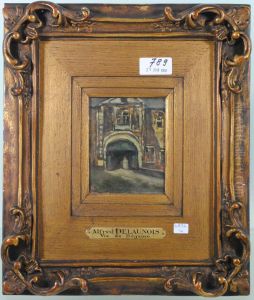Alfred Delaunois Paintings
Alfred Delaunois was a Belgian painter born on June 27, 1875, in Louvain, Belgium. His artistic journey began at a young age, and he pursued his education in the arts at the Royal Academy of Fine Arts in Brussels. Delaunois was particularly known for his skill in oil painting and his ability to capture the essence of his subjects with a blend of realism and impressionist influences.
During his career, Alfred Delaunois developed a reputation for his portraits, landscapes, and still-life paintings. His work often reflected the beauty of the Belgian countryside and the charm of everyday life. Alongside his paintings, Delaunois also produced a range of illustrations and was involved in the decoration of public buildings, showcasing the versatility of his artistic talents.
Despite the challenges posed by World War I and the subsequent economic difficulties in Europe, Delaunois continued to work and exhibit his art. He became a respected member of the Belgian artistic community and participated in various exhibitions, both nationally and internationally. His works were celebrated for their vibrant color palette and the delicate interplay of light and shadow, which brought a sense of warmth and life to his compositions.
Alfred Delaunois passed away on March 13, 1941, in Uccle, Belgium, leaving behind a rich legacy of artwork that continues to be appreciated by art enthusiasts and collectors. His contribution to Belgian art is recognized for its embodiment of the early 20th-century European artistic movements, and his paintings remain a testament to his dedication and skill as an artist.

